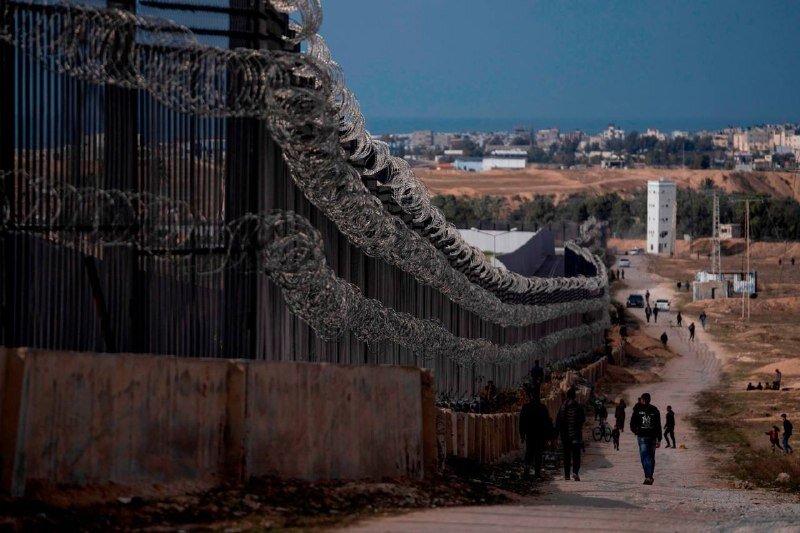West beating dead horse

TEHRAN - As gory and devastating scenes continue to emerge from Gaza and people around the world wallow in the inability to help the Palestinians, American and European politicians have once again begun to endorse the two-state solution.
UK Defense Minister Grant Shapps conveyed to British media this week that the establishment of "two separate states" in Palestinian territories stands as the sole avenue toward "ending the conflict between Israel and the Palestinians."
Belgium’s foreign minister indicated that Europe is actively working to "orchestrate a peace conference to set the two-state solution on the right course."
Even Israel’s principal advocate, the U.S., has voiced optimism that the two-state solution will soon be actualized, paving the way for “sustainable peace” in West Asia. During a recent phone call between U.S. President Joe Biden and the Israeli Prime Minister, it was expressed that Israel may eventually entertain some form of Palestinian statehood.
However, in response to the same conversation, Benjamin Netanyahu's office made it clear that the incumbent leader sees no room for a sovereign Palestinian state. “In his conversation with President Biden, Prime Minister Netanyahu reiterated his policy that, after Hamas is destroyed, Israel must retain security control over Gaza to ensure that Gaza will no longer pose a threat to Israel, a requirement that contradicts the demand for Palestinian sovereignty,” disclosed a statement from the Israeli prime minister’s office.
With Netanyahu seemingly at odds with Biden regarding the prospects of Palestinian statehood, the U.S. President appears to hold the belief that he might ultimately succeed in his plan, given Netanyahu's precarious position. The prime minister’s popularity has nearly plummeted to zero over the past three months of conflict, raising the likelihood that he may face imprisonment due to accusations of fraud, corruption, and bribery once the conflict subsides.
The Palestinian state endorsed by the U.S. would only encompass 25% of Palestinian lands, constituting a demilitarized entity alongside a fully supported and supplied militarized Israeli state.
Several regional countries have also thrown their support behind the two-state solution, which offers minimal rights to the Palestinians, to preserve their close ties with the Israeli regime and fend off public outrage.
"We agree that regional peace includes peace for Israel, but that could only happen through peace for the Palestinians through a Palestinian state," Saudi Arabia’s Foreign Minister Faisal bin Farhan told a panel at the World Economic Forum in Davos.
That’s while analysts from around the world have warned several times that neither Netanyahu nor any other Israeli politician is willing to allow the creation of a Palestinian state, even one that resembles a shell of a government.
“What the Israelis are determined to do is create a Greater Israel, and that Greater Israel includes Gaza, the West Bank, and what we used to call Green Line Israel,” world-renowned political scientist and international relations scholar John Joseph Mearsheimer told a British magazine UnHerd on December 16, 2023.
But even if Netanyahu, known for his longstanding opposition to Palestinian statehood, or his successor were to reconsider their stance, the feasibility of the two-state solution remains in doubt.
How does the two-state solution work?
The roots of the two-state solution date back to 1937 during Palestine's British mandate, proposed by the Peel Commission. The plan apportioned the most challenging terrain, including the Negev Desert, the West Bank, and the Gaza Strip to the Arabs, while designating the coastal areas and fertile lands of the Galilee to the Jews. This concept resurfaced in 1948, with Zionists covertly envisioning it as a precursor to establishing a "greater Israel," encompassing Palestine, South Lebanon, Syria's Golan Heights, the Hauran Plain, and Deraa.
In the years following 1948, the idea of a two-state solution in Palestine was repeatedly raised. However, the U.S. and Europe never forced Israel to adhere to it. Instead, Israel expanded its occupation of Palestinian territories, erected numerous settlements in East Jerusalem and the West Bank, and violated holy sites, oppressing Muslims and Christians while targeting any Palestinian dissenters.
Resurrecting the two-state solution would necessitate Israel to relocate over 1 million illegal settlers. The regime should also try to treat all Palestinians as human beings with rights and refrain from labeling them as “human animals”. These changes are improbable due to Israel's systematic anti-Palestinian indoctrination and the regime's confidence in unyielding Western support.
What can be done other than the two-state solution?
“Israel has three options. Either a two-state solution, which they reject, one democratic state with equal rights for all, which they reject, or ethnically cleansing the Palestinian people from all of Palestine, which is what they've been trying to do,” Mustafa Barghouti, a Palestinian parliamentarian in the West Bank told Aljazeera about the future of the Israeli-Palestinian conflict.
With Israeli politicians' unquenchable bloodthirst, the West’s full support, and the Turkish and Arab governments' inaction, many believe that a full-on genocide of the Palestinian people is hard to evade.
But those who are more optimistic and believe that the Axis of Resistance can singlehandedly manage to defeat Israel and put an end to its attacks on the Palestinians are trying to envision more scenarios for post-war Gaza, other than the two-state solution. Many find themselves considering the prospects of a referendum, which Iran has been championing for several years.
The proposed referendum would empower all indigenous people, irrespective of their religious affiliation, to vote, overseen by an international body, such as the United Nations, rather than Israeli or Palestinian entities.
With the continuous failure of Western and Arab leaders to secure the two-state solution, it seems that a referendum remains the only path toward peace in the region.
By Mona Hojat Ansari
Leave a Comment